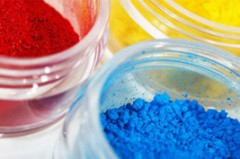Application
What does titanium dioxide do to your body?
Titanium dioxide (TiO2) is a white powder that is widely used as a coloring agent in many products, including food, cosmetics, and paints. When consumed or used topically, titanium dioxide can have several effects on the body:
1. Digestive system:
Titanium dioxide is generally considered non-toxic and passes through the digestive system without being absorbed by the body. However, some studies have suggested that it may have a potential inflammatory effect on the intestines, particularly in individuals with inflammatory bowel diseases like Crohn's disease or ulcerative colitis.
2. Respiratory system:
Inhaling large amounts of titanium dioxide particles, such as in occupational settings like manufacturing plants, can potentially cause respiratory irritation, lung inflammation, and impaired lung function. However, the risk is minimal from the small amounts present in consumer products.
3. Skin absorption:
When used in cosmetics and sunscreens, titanium dioxide particles can penetrate the outer layers of the skin, but there is limited evidence of significant absorption into the bloodstream or other tissues.
4. Potential carcinogenic effects:
Some studies have raised concerns about the potential carcinogenic effects of titanium dioxide, particularly when inhaled in occupational settings or when exposed to sunlight (photocatalytic activity). However, the evidence is not conclusive, and regulatory agencies like the U.S. Food and Drug Administration (FDA) and the European Food Safety Authority (EFSA) have not classified titanium dioxide as a carcinogen for general consumer use.
It's important to note that the potential risks associated with titanium dioxide exposure are generally considered low for typical consumer use, as the amounts present in most products are relatively small. However, it's always a good idea to follow product instructions and consult with a healthcare professional if you have any concerns about the safety of specific products or ingredients.




